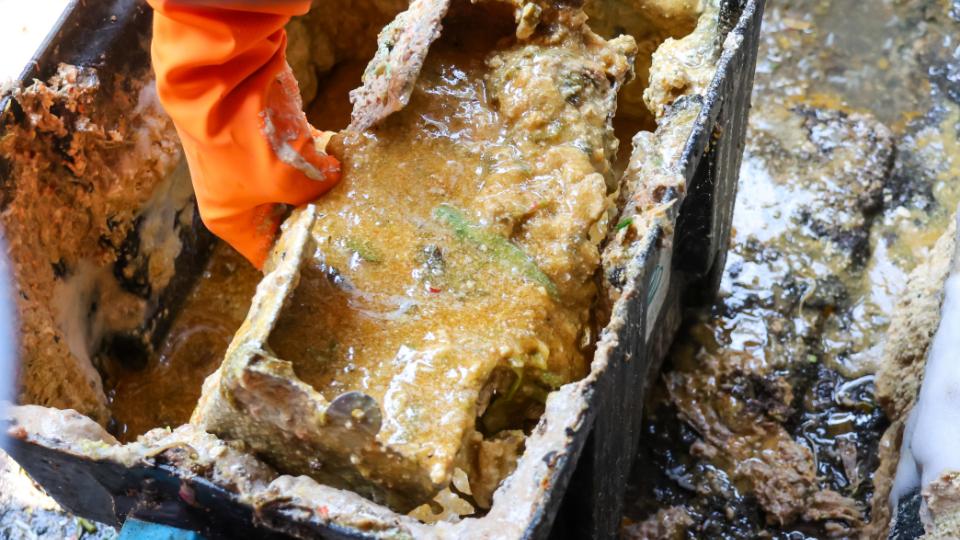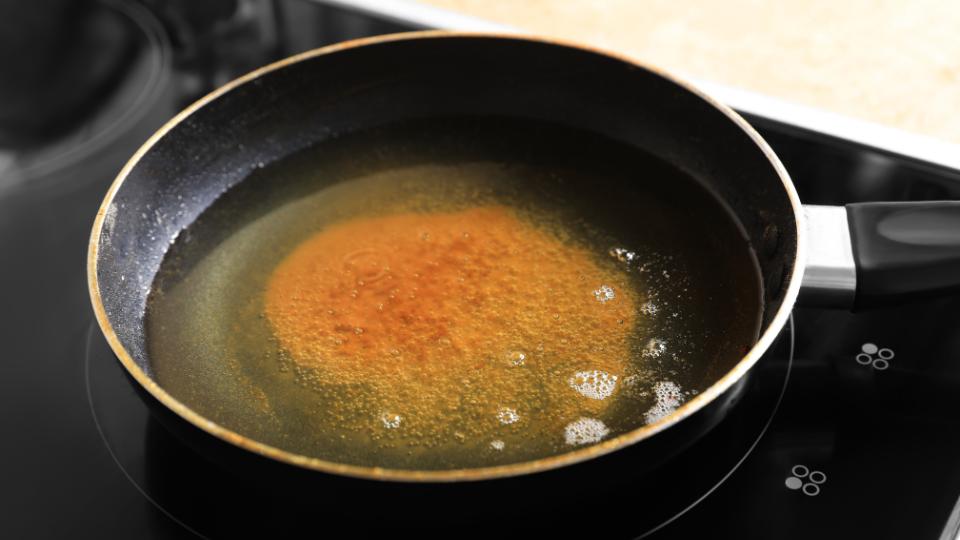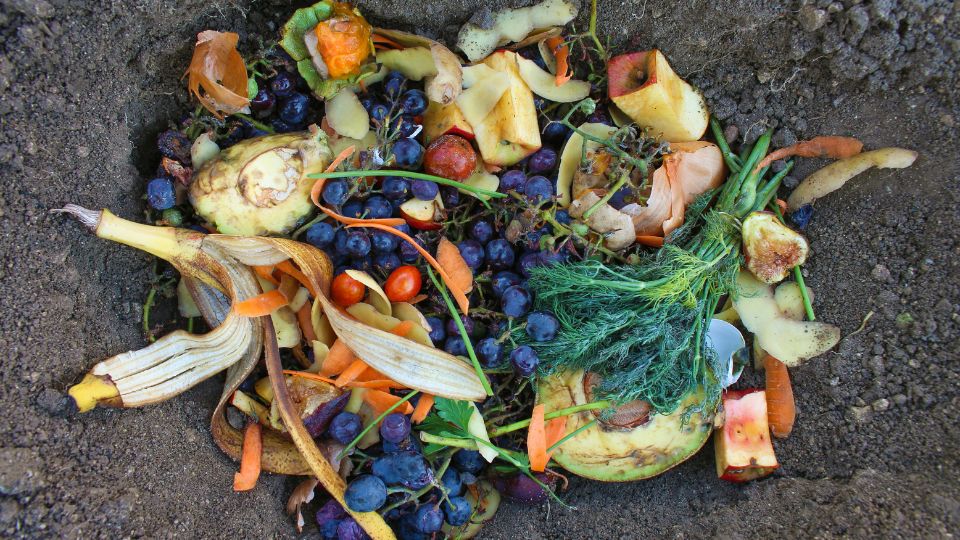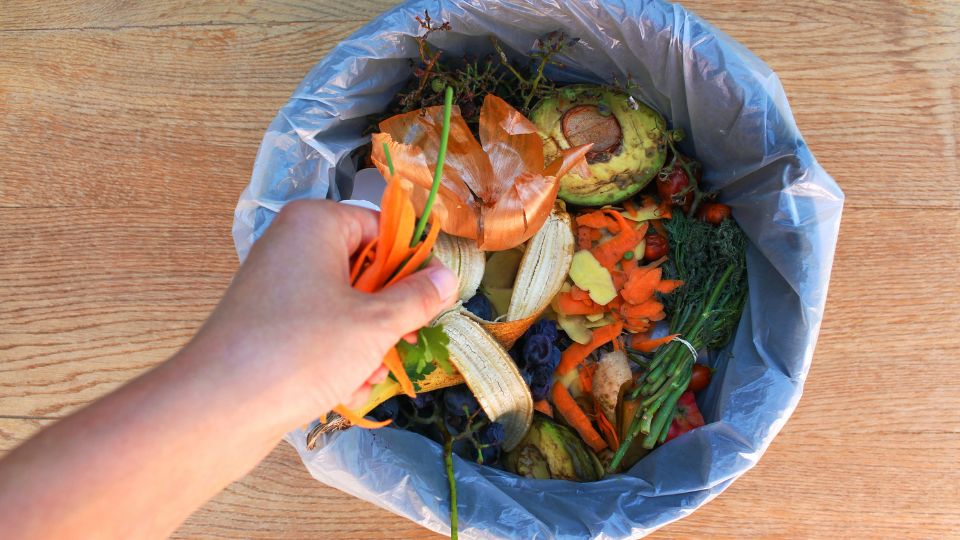
What is FOG (Fat, Oil, and Grease) Waste?
FOG waste refers to the accumulation of fats, oils, and grease generated from food preparation and cooking processes in commercial kitchens.
This waste is a by-product of frying, grilling, baking, and food processing.
Common sources include animal fats, vegetable oils, dairy products, meat scraps, and sauces. When these substances enter the drainage system, they can cool and solidify, leading to blockages and environmental issues.
What causes FOG Waste?
FOG waste is primarily caused by everyday kitchen activities, such as:
- Cooking and food preparation, especially frying and grilling.
- Washing dishes, utensils, and kitchen equipment that have food residues.
- Improper disposal of leftover food and cooking by-products.
- Cleaning processes involving greasy pots, pans, and surfaces.
In commercial kitchens, such as those in restaurants, the high volume of food production increases the risk of significant FOG waste generation.
Why is FOG Waste a problem?
FOG waste poses several problems for both businesses and the environment:
- Drain Blockages: FOG can solidify in pipes, leading to clogs and blockages. This can cause sewage backups, resulting in costly repairs and potential health hazards.
- Environmental Damage: When FOG waste enters the sewage system, it can reach natural water bodies, harming aquatic life and polluting water sources.
- Legal and Financial Consequences: Businesses that improperly dispose of FOG waste may face fines and legal action. Non-compliance with waste management regulations can lead to increased operational costs and reputational damage.
- Public Health Risks: Blocked drains and sewage overflows can create unsanitary conditions, posing risks to public health and safety.

How do you properly dispose of Grease/FOG Waste as a business?
Proper disposal of FOG waste is crucial to maintaining a healthy and compliant commercial kitchen. Here are the best practices for disposal:
- Use Grease Traps and Interceptors: Install grease traps or interceptors to capture FOG before it enters the drainage system. Regularly clean and maintain these devices to ensure their effectiveness.
- Separate FOG Waste: Collect and store FOG waste separately from other kitchen waste. Use dedicated containers for used cooking oil and grease, and ensure they are properly sealed to prevent leaks.
- Work with Licensed Waste Collectors: Partner with licensed collection services that specialise in FOG disposal. They can safely collect and recycle or dispose of the waste according to regulations.
- Avoid Pouring FOG Down Drains: Never pour fats, oils, or grease down sinks or drains. Instead, allow them to cool and solidify, then scrape them into designated containers.
How can businesses reduce FOG Waste?
Reducing FOG waste is not only environmentally responsible but also cost-effective. Here are some strategies to minimise FOG production:
- Train Staff: Educate kitchen staff on the importance of proper FOG management and best practices for disposal.
- Use Less Oil: Opt for cooking methods that require less oil, such as baking, steaming, or grilling. This reduces the amount of waste generated.
- Recycle Used Oil: Partner with recycling companies that can convert used cooking oil into biodiesel or other products. This reduces the volume of waste and promotes sustainability.
- Regular Equipment Maintenance: Ensure kitchen equipment is regularly maintained and cleaned to prevent excess grease buildup.
- Monitor FOG Levels: Keep track of FOG production and disposal to identify areas for improvement and ensure compliance with regulations.

What are the laws and regulations for FOG Waste?
In the UK, businesses must comply with various laws and regulations regarding FOG waste management. Key regulations include:
- Water Industry Act 1991: This act prohibits the discharge of any matter likely to cause blockages in public sewers, including FOG. Non-compliance can result in fines and legal action.
- Environmental Protection Act 1990: This legislation requires businesses to manage their waste responsibly and ensure it does not harm the environment or human health.
- Local Authority Regulations: Local councils may have additional regulations and requirements for FOG waste disposal. Businesses should consult with their local authority to ensure compliance.
- Waste Management Licensing Regulations 1994: Businesses must use licensed waste carriers for the collection and disposal of FOG waste. Keeping records of waste transfer notes is also required.
By adhering to these regulations and implementing effective FOG management practices, UK businesses can maintain a compliant, efficient, and environmentally-friendly commercial kitchen.








